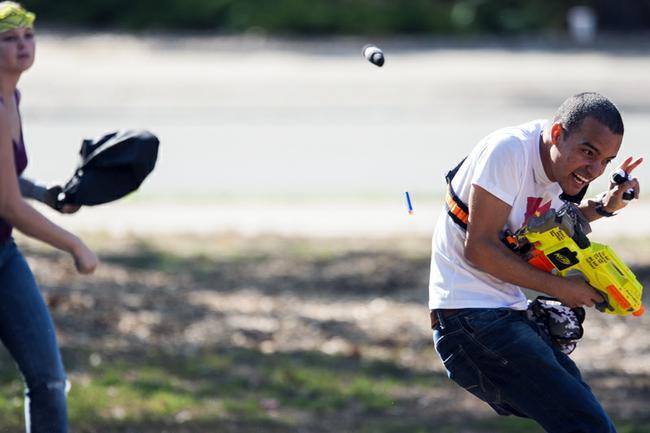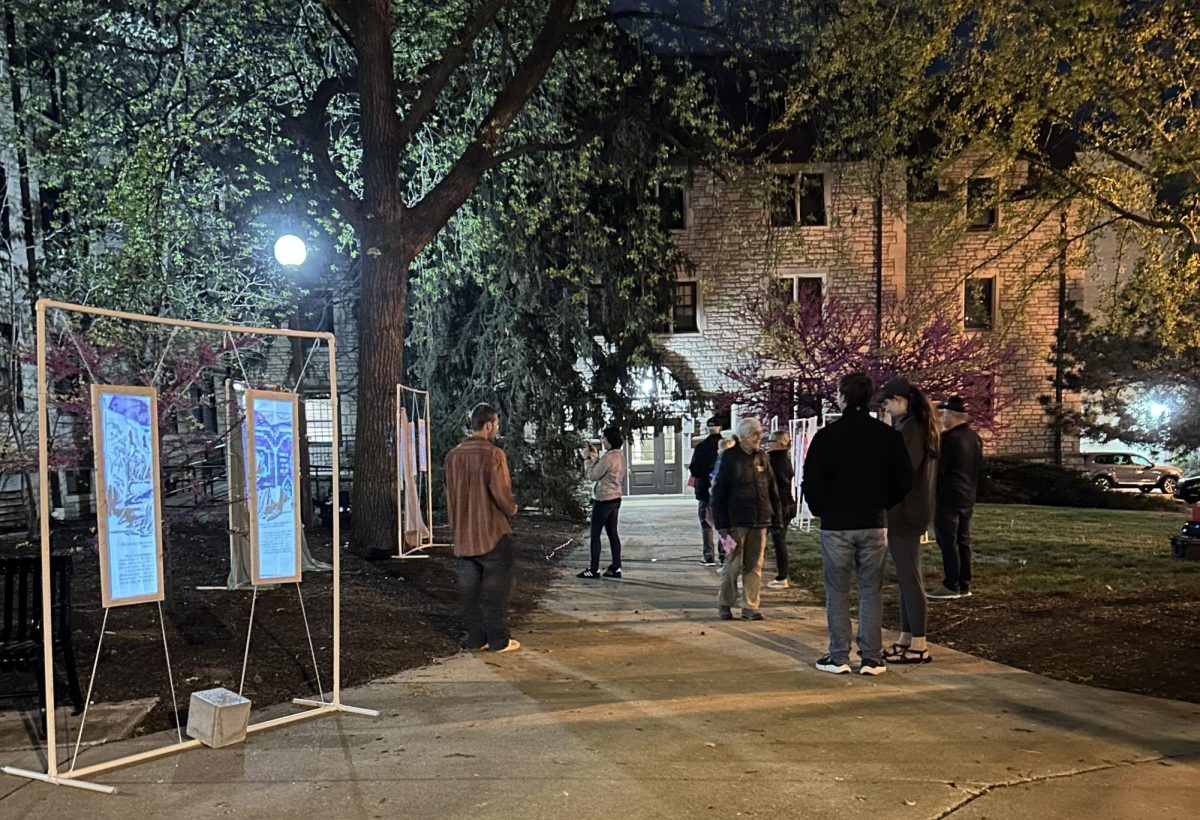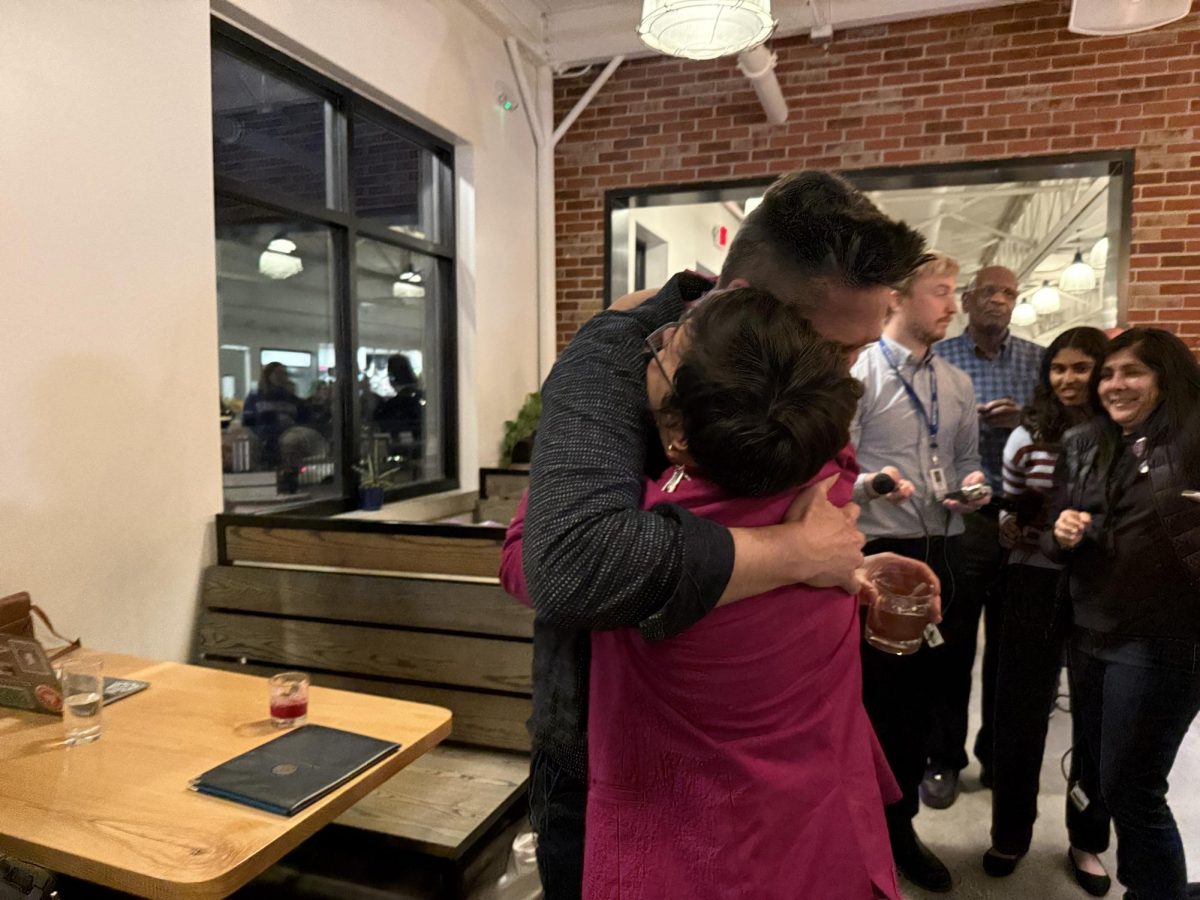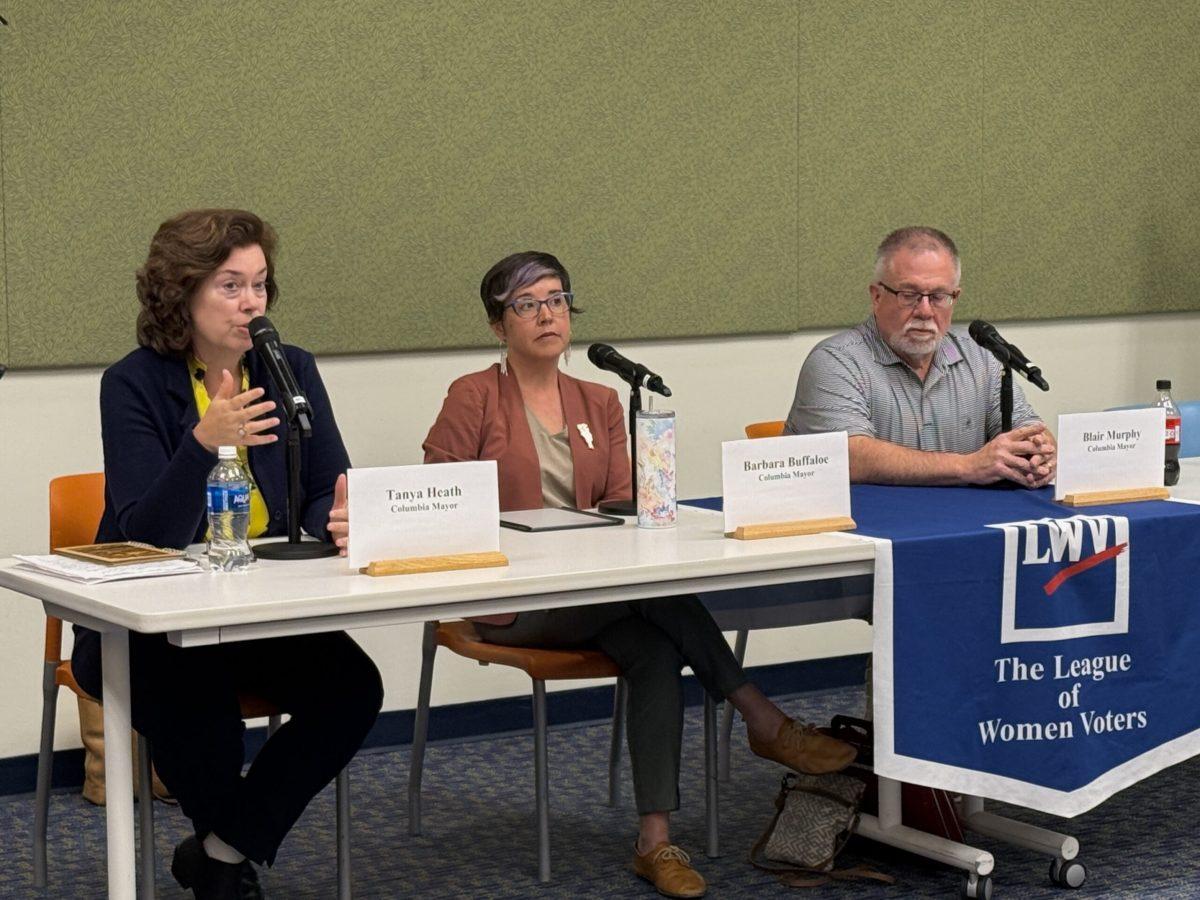Bandanas and Nerf guns signaled the start of the biannual Humans vs. Zombies game, which began Nov. 2 and will end Wednesday.
Humans vs. Zombies was first played at MU in the Spring 2009 semester, according to the organization’s website. The game has been played every semester since then, with more than 400 students and faculty participating each time. Students from neighboring universities and colleges are also allowed to participate.
Humans vs. Zombies Vice President Brett Gilpin said he thinks the game is so popular because it gives students a way to escape the pressures of college for a week.
“We appeal to those people who still want to play games and have fun,” Gilpin said. “It is more relaxing to focus on hunting humans when you’re a zombie or trying to survive when you’re a human than it is to just continuously worry about your homework or things.”
In compliance with MU policy, humans are not allowed to have their Nerf guns out in class, Gilpin said. Though humans are allowed to paint their guns, to be in accordance with federal laws, they must leave the tips of them colored orange to prove the guns are not real.
The organization wrote its own rules to keep players safe, Gilpin said. For example, participants cannot modify their darts to be harmful.
The rules of play are pretty straightforward, Gilpin said. A zombie can only tag humans when they are outside. If a zombie tags a human, he or she becomes a zombie. A zombie shot by a human or hit by a rolled-up sock is “stunned” and must remove the bandana for 10 minutes but can resume play afterward. A zombie must tag at least one human every 48 hours or the zombie is out of the game.
The last rule is to promote constant play more than anything else, Gilpin said.
In addition to constant play during the day, Humans vs. Zombies organizes missions at night. Missions make sure the game keeps moving but are not mandatory events, Gilpin said.
“Before (the original creators) added this aspect to the game, people would literally just sit inside all day every day so that they would ‘win,’” he said.
Missions are a way for humans to get involved with the story the moderators write for the game, Gilpin said.
The only difference between the games run in the spring and fall semesters is that more people participate in the fall, he said. He thinks this is because students have more free time during the fall and are more involved on campus during the spring.
Freshman Lyssa Hill said though she has enjoyed participating so far, she hasn’t seen that many people take part in Humans vs. Zombies.
“There are not many people participating, which means there aren’t many zombies to chase us,” she said.







